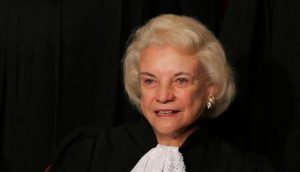The Indian
Supreme Court delivered a split verdict on the Karnataka hijab ban case on
Thursday, October 13. The apex court was hearing a batch of pleas appealing the
Karnataka High Court judgement that refused to strike down the Karnataka government
order (GO) that banned girl students from wearing the hijab, a head covering
worn by Muslim women in public, to educational institutions.
A two-judge
bench of the Supreme Court comprising Justice Hemant Gupta and Justice
Sudhanshu Dhulia heard the pleas.
Pronouncing
the verdict, Justice Gupta said: “There’s a divergence of opinion.”
How was
the Supreme Court bench divided?
Justice
Hemant Gupta, who headed the bench, upheld the government order. “There is a
divergence of opinion. I have held against the appellant. I dismiss the appeal,”
Justice Gupta said.
Justice
Gupta laid out 11 questions in his judgement. He held that wearing the hijab is
not an essential religious practice in Islam and the state government order
serves the purpose of access to education.
Also Read | What is Essential Religious Practices test?
Justice
Sudhanshu Dhulia allowed the appeal and quashed the Karnataka government order.
“One thing
which was topmost (priority) for me was education of girl child. A girl child
in areas does household work and chores before going to school and are we making
her life any better by doing this (banning the hijab).”
His
judgement stated: “It was just a question of choice. I have held the ration in
Bijoy Emmanuel squarely covers the case.” He further said that venturing into
ERP was unnecessary and the High Court adopted a wrong approach.
The
context
The BJP-ruled
Karnataka state government issued an order stating that uniforms to educational
institutions must be worn compulsorily and without exception, where such
policies exist. Several educational institutions used this order to ban Muslim
girls from wearing the hijab.
Muslim girl
students from various colleges in Karnataka approached the High Court after
they were stopped from attending classes because they were wearing the hijab.
On March
15, the Karnataka High Court upheld the government order allowing colleges to
ban the wearing of the hijab in educational institutions. A three-judge bench
of the Karnataka High Court comprising Chief Justice Ritu Raj Awasthi, Justice
Krishna S Dixit and Justice JM Khazi held:
· Hijab is not an essential religious
practice in Islam
· The requirement for a uniform is a
reasonable restriction under Article 19(a)
· The government has the power to pass
the order, no case is made out for its invalidation
What
happens now?
Since the
Supreme Court bench delivered a split verdict, the bench directed that the
appeals be now placed before the Chief Justice of India to constitute an
appropriate larger bench.







